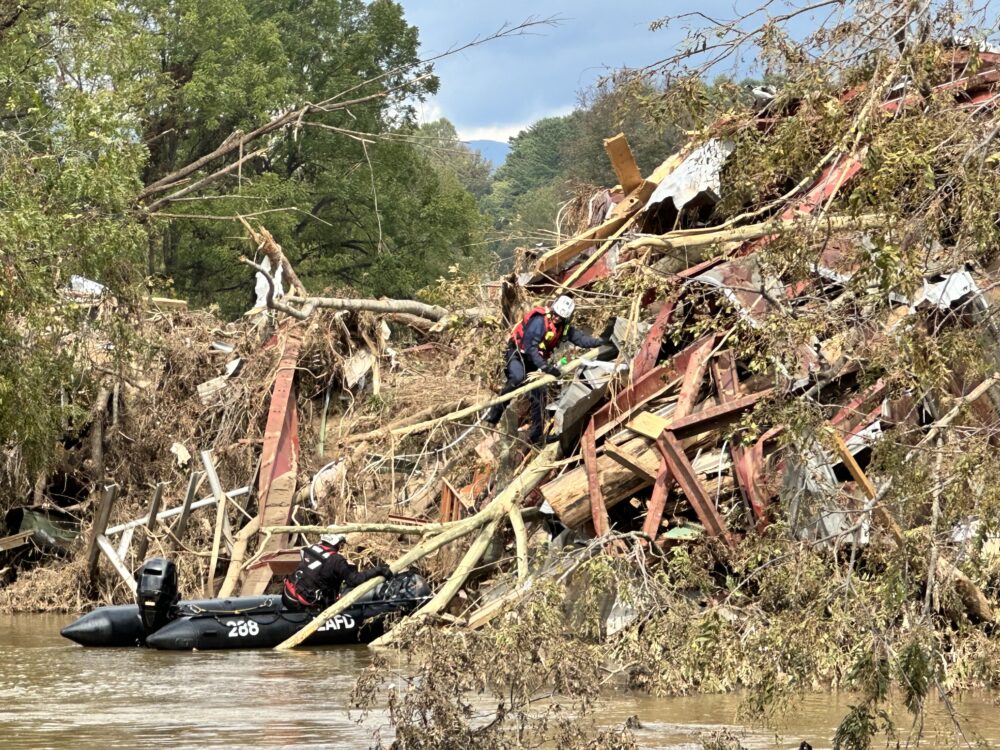We have much more to do and your continued support is needed now more than ever.
In Cancun and Congress, Pressing for Clean Energy Jobs ASAP
As the Cancun climate talks proceed in balmy 75 degrees weather, the U.S. Senate stands on the precipice of a vote on a controversial new tax bill. Unfortunately, key omissions in both the evolving international climate deal and the tax legislation threaten to plunge the vision of a clean energy economy into a deep freeze.
In Cancun, NWF has been working as part of the BlueGreen Alliance for inclusion of provisions that seek to ensure that the transition to a greener economy require sustained commitment of national resources to create and retain good union jobs. Known as “Just Transition,” the provisions were removed from the opening section (known as the “Shared Vision”) of the draft climate treaty. These provisions were the only anchor in the deal that addresses how efforts to address global warming can support jobs and workers. There are significant and ongoing efforts to add this piece back into the agreement (supported by the United States and other countries) but as of now it still remains out. Simply put, it needs to be placed back into any final agreement.
On a parallel track, Congress is now readying itself to vote on a new tax package that extends the current income tax levels. Like the emerging Cancun agreement, the tax package fails to include several key provisions that have successfully encouraged recent investments in creating a clean energy economy. One provision known as the Section 48C Advanced Manufacturing Tax Credit provides tax credits to manufacturers that invest in retooling America’s factories to build clean energy technologies such as electric vehicle components. Leaving 48C on the cutting room floor is tantamount to abandoning manufacturing state Senators, manufacturing industries, and domestic clean energy manufacturing overall.
The second key piece that may be omitted from the emerging tax bill is known as the Section 1603 Treasury Grant Program which authorizes the Department of Energy to issue grants, in lieu of existing renewable energy tax credits, to renewable energy facilities that are placed in service or that begin construction by the end of the year. The program is a key incentive that encourages new investment in renewable energy projects such as the offshore wind projects the National Wildlife Federation described its recent report “Offshore Wind in the Atlantic: Growing Momentum for Jobs, Energy Independence, Clean Air, and Wildlife Protection.”
A global vision that tackles the climate crisis but fails to try and ensure that a low carbon future is built on good, new jobs would be selling our future short. Given the current economic issues in our country, now is the time to be seeking global and national action to rebuild the country with a green vision and not place good jobs on the back burner.
Listen to Bob Baugh, Executive Director, Industrial Union Council, AFL-CIO, speak about a “Just Transition.”
[youtube]http://www.youtube.com/watch?v=CgFZckFqEEE[/youtube]
Listen to Stewart Acuff, Chief of Staff, Utility Workers Union of America, talk about working with environmental groups to create a clean energy economy.
[youtube]http://www.youtube.com/watch?v=LrfhsIYIcKk[/youtube]





















